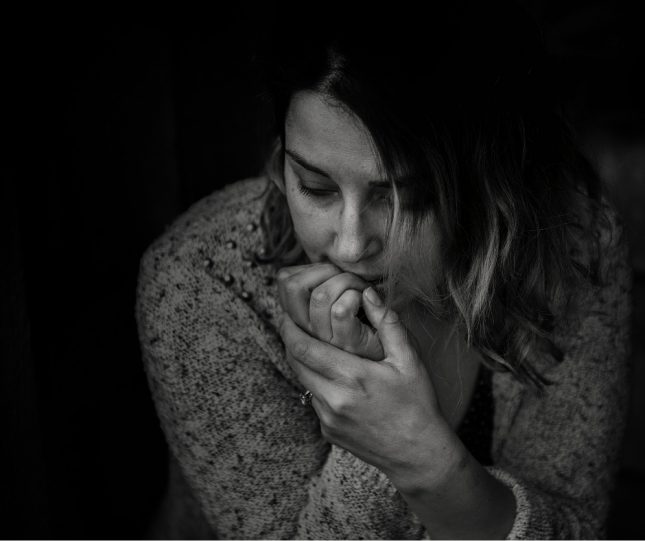The Christchurch mosque shootings have shaken most of us to the core. There is just a general disbelief that anything like this could have happened in New Zealand… ever! The families of those lost will be grieving their loved ones for many years to come.
While, hopefully, few of us will have to cope with ferrying children through a tragedy of this magnitude, it is inevitable there will be times when we have to support our children through grief. Whether it be a beloved family pet, a close family member, or a school acquaintance, grief will effect our children in different, and sometimes unpredictable ways.
How children respond to grief
In looking up the internet for “stages of grief”, I came across this summary of children’s responses to grief from Roxanne Dryden-Edwards.
For children and adolescents, reactions to the death of a parent or other loved one tend to be consistent with their reaction to any severe stress. Such reactions usually reflect the particular developmental stage of the child or adolescent.
Infants up to about the age of 2 years cannot yet talk, their reaction to the loss of a loved one tends to involve crying and being more irritable. They further show physical symptoms of sleep or appetite problems, changes in activity level, and being more watchful of (vigilant toward) their surroundings.
Early school-aged children, from 6 to 8 years old, more likely understand that death is permanent compared to younger children, often feel guilt about the death of the loved one, become preoccupied with memories about the departed, and try to master the loss they have suffered by talking about it frequently.
Children from 9 to 11 years old display quite similar symptoms to those of early school-aged children, however this older group is more vulnerable to a decrease in self-esteem because they feel different from their peers if they have experienced the loss of a loved one. They are also more likely to defend against their feelings of loss by becoming engrossed in school, social, and/or extracurricular activities.
Young adolescents 12 to 14 years of age, in keeping with their budding need for independence, may experience mixed feelings about the deceased individual and exhibit a wide range of emotions. They may avoid talking about the loss.
Older teens usually experience grief similarly to adults, enduring sadness, anxiety, and anger. They are more likely to deny their feelings of loss to parents but discuss them in detail with peers. For children, adolescents, and adults, as with any major stress, grief may cause a person to regress emotionally, in that they go back to former, often less mature ways of thinking, behaving, and coping.
Responses to Grief
Various people have described what has been named as “the stages of grief.” In discussing these with you, I would like to emphasise that no-one had to go through each or all of these.
Rather than thinking about “stages” as if they are some predictable and compulsory rite of passage, I prefer the term “responses to grief.” This attitude frees us – as the mourner – to respond freely as our emotions dictate, and us – as supporters – to respond to the person in front of us, rather than try to analyse “what stage” the people we are concerned about are “up to.”
1. Shock, disbelief and denial
When we find ourselves in a situation of loss and grief, our first response is often that of shock, disbelief or denial. These expressions are different ways of saying that in situations of loss and grief we may be behaving rather mechanically and depressing our emotions or seem unable to have any, while we deal with the practical actions that need to be taken. I tend to see this as nature’s useful way of enabling us to deal with safety issues in an emergency and postpone our feelings till it is safe to have them.
2. Sadness and Anger
Almost everyone who is grieving – adult or child – can be expected, once the time for denial of feelings is past, to be showing much more anger and much more sadness than usual.
The grief and loss has usually taken away our usual ability to (appropriately) contain our feelings and so our sadness and anger will bubble over, sometimes predictably and sometimes at times and in amounts that will surprise us.
When we are supporting children through grief, they need our empathy and understanding. Children who experience their parent’s feelings out of control may find this frightening and if we are supporting families in situations of loss, often the best thing we can do is to give the grown-ups and children a break from each other.
While it is appropriate for children to be around grieving adults, there are times when adults need to be able to experience their feelings as and when they arrive and not to have to guard themselves in front of their children. Equally, there are times when adults are in deepest grief and it becomes very difficult for children to see their parents in agony.
Getting the children away to do some ordinary “child stuff” may be helpful to both adult and child. Also, this is a chance to be emotionally supportive to the child in a way that the parents may not have the reserves to do just now. It is a chance to ask them how they are doing, or to let them have a chance to be freely sad or angry without having to protect their parents – or may be a respite to be a carefree child for a couple of hours.
Starting with an arm around them and “It is really hard to watch grown-ups being so unhappy” may be an opener for them to express their feelings.
3. Depression
Most people, after a major loss, will go through a time of depression. By “depression” I don’t mean a clinical or medical expression, but rather a phase where all feelings are muted.
The world seems a dull and grey and unfriendly place. Nothing seems worth bestirring oneself to do, nothing seems interesting and nothing much seems worthwhile doing. We experience themselves as going through the motions of getting dressed, eating, doing necessary tasks, but hardly feeling present as we do so.
We observe other people as being vital, lively, enjoying themselves, but it seems an experience that has no current relevance to us.
At this time, we have little belief that anything will change. (I can remember looking at blue skies and sunny days and wondering why the sun was shining so brightly, how could it and what did it have to do with me?)
4. Acceptance
Eventually, we begin to integrate the loss into our daily lives. The sadness and the anger no longer overwhelm us and things just seem to brighten up. We begin to adapt to a different life and a different way of viewing ourselves and the world, and things do get gradually familiar and easier.
Bad memories are replaced by good memories
At first we are flooded with all the bad memories of the immediate illness or loss or aftermath. One of the ways we know we are getting through our grief is when we start getting back all the lovely memories – when we start to remember the good things we did together, the happy times we had together.
We begin to trust that we can conjure up the good times and the happy memories and they are ours to have and to keep.
Helping children cope with ordinary loss, trauma and grief
Fortunately, fewer of us will have to cope with ferrying young children through the loss of a parent. However, there will inevitably be times when they have to deal with losses and pain. At these times, even if there is nothing that we can do to make the immediate situation better, there are several things we can do to help our children get through the passages of grief and eventually integrate their loss into their lives.
Responses according to temperament
Children will react to trauma, loss and grief in a variety of ways and, just as with adults; there is no correct way for a child to respond. An outgoing, bubbly child may respond very dramatically with lots of loud crying and overt upset. They may well need to hear about what happened many, many times and have a need to tell everyone about the great event. A more reserved child may become quiet and thoughtful and go off and spend time alone integrating the information. Our strong willed children may be very angry that this has happened, be outraged that it couldn’t be prevented and seek to blame someone for it. And some children just take it in their stride and show very little response. All these are valid responses.
Check out your beliefs
Unfortunately, in the stress of our own grief, it is not the best time to have to sort out our beliefs. However, children need immediate answers and, since few of us sit down and plan “What am I going to tell them about heaven or G-d or the absence of these?” we need to think in child terms rather than adult terms.
One of the biggest pickles we get into is when we start to try to make things better with nice thoughts that “Grandma has gone to heaven to be happy there with G-d.”
It may be of comfort to us to think that way, but we need to be prepared for “When can I go and visit?” “Why wouldn’t she prefer to be here playing with me?” and “Why was G-d so mean as to take her there.” And then there is the whole business of phoning and emailing!
It is a really good time to sort out your own beliefs about the physical and spiritual components of your life and how they fit together.
Tell the truth – tactfully
In our parents’ day and certainly in our grandparents’ day, children were shielded as much as possible from traumatic events and many people believed that, if you just didn’t talk about it, a child would soon forget. As a response to our own childhood and the secrecy and denial that we experienced, we are often tempted to go to the other extreme and “tell all” so that our children will never have to have the experience of someone disappearing in their life and their feeling that they cannot ask questions.
I believe that we should tell our children the facts as truthfully as we can, while being very aware that we shouldn’t overload them with more information or more emotion than they can handle.
We also need to remember that children are very literal and it may not be altogether helpful to use euphemisms to shield them. (One of my more spectacular failures was trying to explain what happened at her uncle’s funeral to my four year-old. I was describing the burial – “As they lowered his body into the ground.” She looked absolutely horrified, held her hand across her throat and said, “Only his body! But what about his head?!”)
Dealing with grief – Beloved pets
One of the earliest experiences of loss and death that our child may experience is the loss of a beloved pet. One of the nicest ways we can bring some comfort to our child, is to explain to him that, although Rover may not still be around to play with and to cuddle, his memory can still live on in the way we talk about him and remember all the lovely, funny and naughty things that he did.
Pet funerals, even though they may be very sad and accompanied by lots of tears, are a good way of helping our child deal with the reality of their loss and of honouring what their pet has meant to them. Some children like to pick a favourite toy (of theirs or of the pet) to be buried with it and they may like to add something of their own. Make a short speech about what the pet has meant to your family and invite your child to say something as well. Visiting the burial site – presumably at the end of your section – and putting some flowers there may give your child great comfort.
Dealing with grief – Losing grandparents
We may well have to deal, at the same time, with our own grief at losing a parent and our children’s grief at losing a grandparent. This is one of the toughest parts of parenting, but our children are learning to cope with their own grief by watching us deal with theirs and ours. Don’t be afraid to let them see how sad you are, but protect them from grief that absolutely overwhelms you. Children find it scary to see a parent completely out of control.
All families and cultures have different ideas about children attending funerals. For children under five, the length of time involved in a funeral may make it an impractical idea. At my late mother’s funeral, a dear friend offered to be eight year-old Deborah’s minder and support. Deb was with us most of the time, but our friend kept an eye on her all the time and was ready to move in and take her off for a walk if it all became too much for her.
Dealing with grief – Developing rituals
If you belong to a religious or cultural group, you will have predictable mourning rituals built into your lives. If you do not belong to any particular group you may find yourself bereft of ways to keep memories alive and things to do that can help your children mourn.
Think of things that you can do that bring your child closer to the memory of the person they have lost. Visiting places that are meaningful, sending loving thoughts out loud or silently, playing flowers or shells in significant spots, lighting candles – are all ways to help your memories stay connected and to give your feelings a chance to surface for a while and to feel comforted.
Ahead of significant dates are great times to get together with your children, sit down and talk about how you are going to mark the date when the day comes along.
Integrating feelings and memories
As adults, talking things through helps us make sense of things. Once we have told the story enough times, we have usually expressed our feelings, integrated the information into our lives and dealt with most of the trauma. Don’t be surprised that your children ask the same questions over and over again, or ask you to tell them the story about “how Grandpa became sick and died” many, many times. It is their way of integrating the information and getting over the pain.
Using Storybooks to help deal with grief
One very nice way of helping a child deal with loss or trauma is for them to have a storybook or journal about their time of grief or as a memorial and memento of the good times they have had together.
Older children may well like to put together their own memorial book with stories and photos. Ask them what equipment they need and what help or support they would like from you.
Young children can also integrate difficult information through story-books. You will need to write it for preschoolers and with primary school-age children.
As in all good storybooks, it should begin with “Once upon a time, a beautiful little baby boy/girl was born called … He/she lived with …(show your child’s family members) at …(show your child’s address)”…and add other information that personalises the story and sets it in a happy frame. Add the names of people and pets important in your child’s life and how he/she is loved by and loves them.
“Then one day, a dreadful thing happened…” This is your opportunity to put into age-appropriate language, what happened. Particularly, when the sad event happened very rapidly, this gives your child a chance to catch up with the information he may not have been able to get immediately and to go over and over it until it is fully understood.
Describe the sadness and how people felt and then add lots of important memories – happy, funny and sad – so that your child can anchor them and enjoy them.
Finish the story with a positive message about how the beloved person or pet may no longer be physically in their lives but will always live on in their memories. “Now, any time, …(your child’s name) …is missing grandparent/pet, all he has to do is think about some of the lovely things that they did together.”
Postscript
Our children may want to read or have read the storybook every evening, every time someone comes over and may wish to take it to kindergarten or school to tell their whole class.
Eventually, the trauma will be over and the book will lie neglected. Keep it in a special place to bring out for anniversaries and maybe have a ceremonial reading. Your job is done.
Editor’s Note: If you think your child requires more support than you’re able to offer, try our support services for grieving page for services that may be able to help.







Hi Diane. A childs grieving does not end when the trauma stops. In relation to the loss of a Parent.
particularly as a young child when the loss occurred with each age, stage and milestone, the child will re-evaluate the loss from this new perspective. The older they get the more they are searching for their identity. The affect on a child is life long and requires understanding and support. Just felt we shouldn’t sugarcoat this fact for parents searching for advice.
I’m not an expert but am a parent in this situation.
Hi Mama I absolutely agree with you…which is why I confined myself with loss of pets and grandparents (and assumed that the loss would be experienced in the context of a loving home with loving parents) which is the “usual” sort of loss experienced in a child’s life. For a child to lose a parent who is a major attachment figure is a huge trauma and will continue to be a great loss in the child’s life. While it will leave an unfillable gap, much can be done through support from remaining attachment figures and other support people, so the… Read more »
Thank you so much for this. My father in law passed away a week and a half ago, and we have a 2 year old and a 4year old. The 4year old has lots of understanding about what has happened to grandad, but again this does not make this any easier. We just came home 2 days ago after being with family since it happened.The transition home has been very hard for all of us and my girls behaviour has been different, for us as adults we know what we are feeling and reacting is part of the process but… Read more »
Thanks for your comment- I’m so glad to hear that you found this article helpful. It sounds like you’re doing a great job helping your girls understand what has happened!